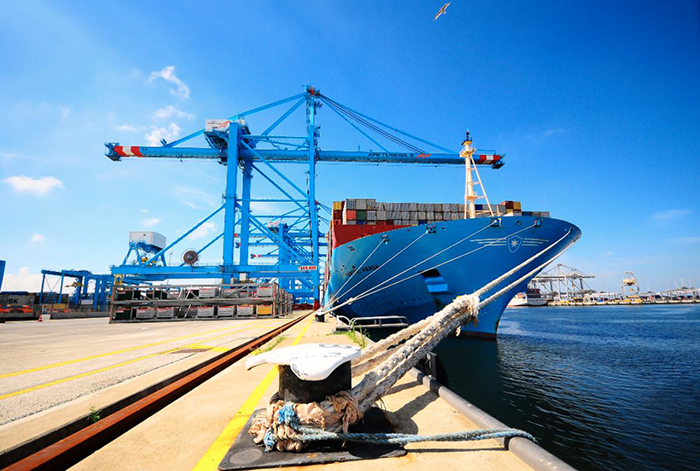Maersk eyes FedEx, UPS style future
Bruce Barnard, Special Correspondent | Dec 13, 2016 3:19PM EST
 The Maersk Group believes that its plan to integrate its transportation business lines will revolutionize the way it does business.
The Maersk Group believes that its plan to integrate its transportation business lines will revolutionize the way it does business.
The Maersk Group’s plans to integrate its liner, terminal, and forwarding units will allow it to transform itself into a “pure play,” global, container logistics group operating like FedEx and UPS, the Danish group’s CEO said.
Maersk “will be like one company” offering container shipping, logistics, and port services through Maersk Line, Damco, and APM Terminals, Soren Skou said at the Danish group’s Capital Markets Day.
The group “can do a better job” through cross selling between its businesses, which have “thousands and thousands of customers.”
Maersk in September announced it would spin off its oil-related and transportation businesses into separate divisions, with Maersk Line, Damco, and APM Terminals making up the Transport & Logistics unit.
To become a global integrator Maersk needs to provide simple solutions to its customers’ complex supply chain needs and digitalize a “still quite analogue” business that uses phones and e-mails, Skou said.
Maersk is in an “excellent” position of strength to realize its ambitions, with the acquisition of German carrier Hamburg Sud opening up “a significant gap between us and the number two (ocean carrier),” Skou said.
The acquisition gave Maersk Line 18.8 percent of global container ship capacity including the orderbook, according to industry analyst Alphaliner. Second-placed Mediterranean Shipping Co. controls 13.6 percent of global capacity.
APM Terminals is also a top five port operator with significant transshipment hubs, while Damco is a medium-sized company with freight forwarding operations and supply chain solutions.
Maersk Line has a been a customer of APM Terminals, but now the two will operate a single unit and together with Damco will sell more inland services, which Maersk Line currently offers to a small fraction of its customers.
The acquisition of Hamburg Sud will replace around 60 percent of revenue lost when Maersk spins off its energy business, Skou said. The energy division generates $9.8 billion, or a quarter of Maersk’s total revenue, while the German carrier will contribute $6 billion, leaving the company a 10 percent hole to fill.
“We intend to replace that lost turnover quickly through organic and inorganic growth,” Skou said.
The acquisition will enable Maersk to build a “very strong” dual platform in South America as it did in Africa, where Maersk Line and Safmarine have an “unmatched portfolio.” It will also add significant revenue and volume to APM Terminals.
The recent rise in oil prices has been a “huge help” for the group’s energy division, which has a $40 a barrel breakeven price, but it will not change Maersk’s future as a container shipping, logistics, and ports company, Skou stressed. Maersk will not become a smaller company, he said.
The Maersk CEO said the consolidation wave that has removed seven of the top 20 carriers in the past year — including the demise of Hanjin Shipping — will continue as some carriers struggle over profitability, slow growth, and the improved products of the larger lines.
No comments:
Post a Comment